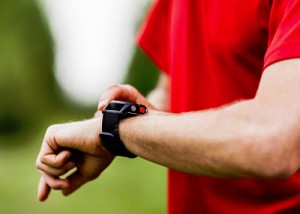While these wearables are highly popular, some evidence is showing that they may not be fully accurate.
In the wearable technology category, no other device is selling as quickly as fitness trackers, which is great news for companies such as Fitbit, which recently took its first steps onto the stock market.
However, experts are saying that people should be careful what information they trust from these wearables.
While experts do agree that wearable technology devices can be extremely helpful in encouraging people to set fitness and health goals, what isn’t yet known is whether or not those gadgets are actually helping users to be able to reach those goals so that they will be able to give themselves an advantage at gaining a healthier body. The advantage to these devices appears to be primarily in encouraging people to create goals and to obtain reminders to stick to those goals. Those features definitely works and a growing number of studies have shown that this is providing people with a measurable advantage.
Evidence that this wearable technology provides reliable feedback in other areas is very limited.
 At the moment, research that has been conducted on the devices to show that they actually work in terms of the feedback that they provide (such as counting steps, calories burned, distance traveled, etc) is very limited. It has been conducted on small numbers or on specific groups of people, so far. There isn’t yet any reliable data with regards to use by the general population.
At the moment, research that has been conducted on the devices to show that they actually work in terms of the feedback that they provide (such as counting steps, calories burned, distance traveled, etc) is very limited. It has been conducted on small numbers or on specific groups of people, so far. There isn’t yet any reliable data with regards to use by the general population.
Fitness trackers are being seen virtually everywhere and come in many forms, such as being attached to clothing, worn on wrists, or fixed to shoes. While they are gathering a large amount of data, what isn’t known is how reliable that data is, or how that data is being used by the wearers.
What isn’t yet known is whether the steps counted, calories burned, heart rate, blood oxygen levels, and sleep quality data are accurate enough to be appropriate to guide the decisions of the wearers. The other factor is that it is not yet known if – regardless of the accuracy of the data – users are actually applying that data to improve their health and performance, particularly over the long term.

